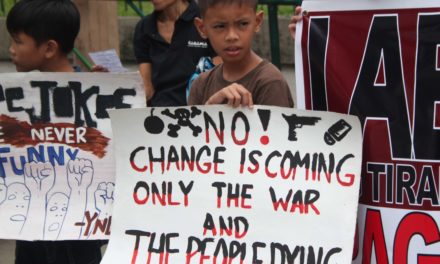By Seema Mustafa
(This was first published in Asian Age http://www.asianage.com/)
(This was first published in Asian Age http://www.asianage.com/)
DAMASCUS, 11 August, 2006: “Nasser in 1956, Nasrallah in 2006” — the Arab street has found a new hero, a figure that it has been looking for to act as a catalyst to unite the Arab world and infuse it with an agenda and a common mission. Sayyed Hassan Nasrallah, the charismatic leader of the Hezbollah, has clearly occupied this position and has been embraced by the peoples of West Asia as the “hero”.
Huge posters of the Hezbollah leader stare down from the streets with many of course giving him a backdrop of far more sophisticated weapons than the organisation possesses. It is exactly a month since Nasrallah and his men, with little more than grit and determination to sustain them, have held off the Israelis, with shopkeepers and the common man, glued to the radio and to Al Jazeera, greeting each successful strike with cheers and applause. The taxi driver, with not even a smattering of English, was able to communicate that Nasrallah is the new leader of the Arab masses, a position he has been given for standing up to the military might of Israel and the US.
The newspapers in Kuwait, and in Syria, are full of little else but the Israeli aggression on Lebanon, with the tone and tenor of the news suggesting that the Arab street is no longer willing to tolerate governments that do not extend full support for the people of Lebanon and the Hezbollah leader. Egypt’s Hosni Mubarak, seen as the leader of one of the regimes close to the US, had to bow to street pressure and send his own brother, who is also the minister for labour, with a large delegation to Beirut to express support for Nasrallah and his fighters. Saudi Arabia, which had first been critical of Hezbollah, changed its tune to support the organisation and demand an immediate ceasefire.
Media reports are now all pointing towards the fact that Israel has lost the diplomatic war, and is set to even lose the military war if it is not careful. The reports suggest that the Hezbollah has lost fewer fighters with the real casualty being the civilians in Lebanon with all newspapers carrying absolutely horrifying pictures of death and destruction. Israel, on the other hand, the reports point out, has lost more soldiers and fewer civilians in what is a clear indication that the Hezbollah is fighting a war against the military while Israel is targeting innocent civilians. In the war for Bint Jbeil, it was the Israelis who pulled back as nine of their soldiers were killed. There are news reports that Israel has had to vacate a town on its side, which, the newspapers here point out, has been the first time ever in its history.
Significantly, the one-month war, which is already being hailed as a “victory” by the Arab street for the Hezbollah, has defeated US plans for West Asia in two crucial areas. One, Nasrallah, who is described by officials here as a “secular” leader, has completely overtaken Al Qaeda leader Osama bin Laden as the real hero in the Arab street. There is not a person in Damascus who is not full of praise for the Hezbollah leader with the people turning to Nasrallah as the new Nasser. He has a vision for unity and he is the man the Arabs are openly saying they would like to be in the lead.
Second, and this is probably the most significant consequence of this war, the Shia-Sunni divide that the Americans and the West had been projecting has been bridged because of the Hezbollah. Nasrallah’s popularity cuts across both groups, with the Arab street unitedly rallying behind the Hezbollah leader. Hamas, which did not have particularly good relations with the Hezbollah in the past, has come out in open support. “Fight on, Hezbollah” is the new song of the Hamas fighters, according to local newspapers. Lebanon's Prime Minister Fouad Siniora has extended support to Hezbollah. Sunni groups are coming out in open support as are governments. Turkey, for instance, has snapped off military ties with Israel and is refusing to purchase more weapons.
A third consequence of the war, which can have major strategic repercussions, is that for the first time in decades, Israel’s military might has been “exposed”. The excitement really centres around the realisation that Israel is not invincible, and an army of tough soldiers armed with little more than not very sophisticated rockets, can keep both Israel and the US at bay. This is being pointed out by columnists in the Arab newspapers, which have reported at length the skillful tactics adopted by the Hezbollah and its ability to strategise the war. Nasrallah has overtaken the heads of governments here, with his smiling face clearly more popular than the despots who rule many of the nations in this part of the world.
US and Israel are seen here as one entity with a major English news daily carrying a photograph of an Israeli soldier sporting a US stars and stripes bandanna. US secretary of state Condoleezza Rice’s recent remarks during a visit to Israel, where she said that the world was witnessing the birth pangs of a new Middle East, led a Lebanese newspaper to brand her as the “midwife from hell”. The anger is palpable, and for the first time in years the Arab street is talking at the top of its voice. This was not so in 1982, when all were divided, but it is so today with the unity in itself a formidable event for the propped up governments and the West, which has still not unequivocally called for a ceasefire and a pullout of Israeli forces from Lebanon.
* Seema Mustafa is a member of the 12-person International Civil Society-Parliamentary Peace Mission that is currently in Lebanon. She is Resident Editor of Asian Age.








